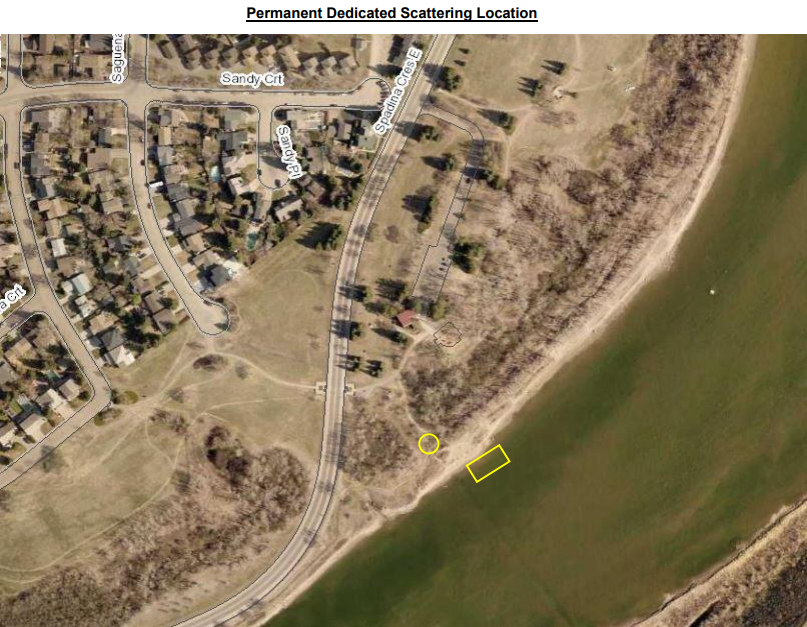A designated place to scatter a lost loved one’s ashes could be in the works for Meewasin Park in Saskatoon after city council discussed the possibility of building a ceremonial area.

A report given to council recommended that a capital project be planned and brought forward during the 2024-25 multi-year business plan and budget deliberation.
After the city was approached in April 2021 by the Sikh and Hindu societies of Saskatchewan, a policy was created to allow ashes to be scattered in the South Saskatchewan River, and discussions began around having a dedicated location to hold ceremonies.
A set of guidelines were created for people spreading ashes in Saskatoon with a focus on considering the impact on the public and environment:
- Scattering is only permitted in the South Saskatchewan River and only from May 1 to October 31.
- Scattering is not permitted within 200 metres upstream of a water intake.
- Scattering must not be done close to high public activity areas.
- The City does not condone entering the river; individuals do so at their own risk.
- If vessels and ceremonial items are to be used, they must be biodegradable.
- Remains must be completely pulverized and no bone fragments or remnants recognizable as human remains may be visible.
- Only a small, ceremonial amount of remains may be scattered.
- Permanent forms of memorialization must be completed through a cemetery.
- Individuals are responsible for complying with all applicable federal or provincial requirements when scattering cremated remains.

Get daily National news
The guidelines also note that permission isn’t required to scatter ashes if these guidelines are followed.
The report to the city said creating a scattering location near the river would be a complex process that requires planning and engagement with cities, faith groups, environmental experts and the public.
A spot in Meewasin Park along the river is being looked at for this potential location.
A two-phased approach was tentatively created, with engagement and design beginning in 2024 and costing an estimated $55,000, and the construction phase beginning the year after with a cost of $246,000.
It was discussed in the meeting that other funding could be attained to help cover the costs from other levels of government and community partners, but it was noted that a look at private donations probably wouldn’t be pursued until the engagement and planning phase was completed.
Mayor Charlie Clark said Saskatoon is becoming much more diverse.
“Part of becoming more diverse is learning and understanding what are the meaningful ways that we can ensure people can practise their cultures and traditions,” Clark said.
He said there’s a lot of meaning behind scattering ashes, noting that he’s heard from people who have family in India and Pakistan.
“People will travel all the way to those countries just to have chance to do that practice of scattering ashes in a river.”
He said a little work needs to be done to make sure people have safe access to the river, adding that the city will be working with the Sikh and Hindu communities on that.












Comments
Want to discuss? Please read our Commenting Policy first.